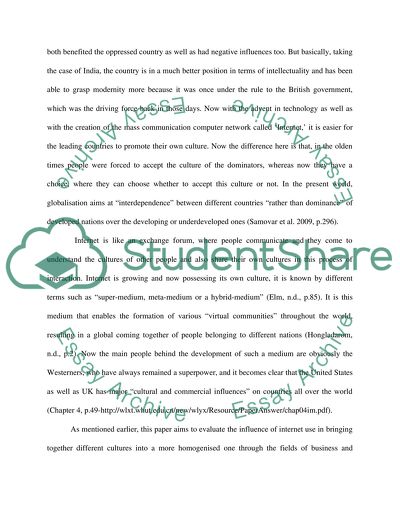Cite this document
(“The growth in internet use has affected cultures around the world, Essay”, n.d.)
Retrieved from https://studentshare.org/english/1469688-the-growth-in-internet-use-has-affected-cultures
Retrieved from https://studentshare.org/english/1469688-the-growth-in-internet-use-has-affected-cultures
(The Growth in Internet Use Has Affected Cultures Around the World, Essay)
https://studentshare.org/english/1469688-the-growth-in-internet-use-has-affected-cultures.
https://studentshare.org/english/1469688-the-growth-in-internet-use-has-affected-cultures.
“The Growth in Internet Use Has Affected Cultures Around the World, Essay”, n.d. https://studentshare.org/english/1469688-the-growth-in-internet-use-has-affected-cultures.


